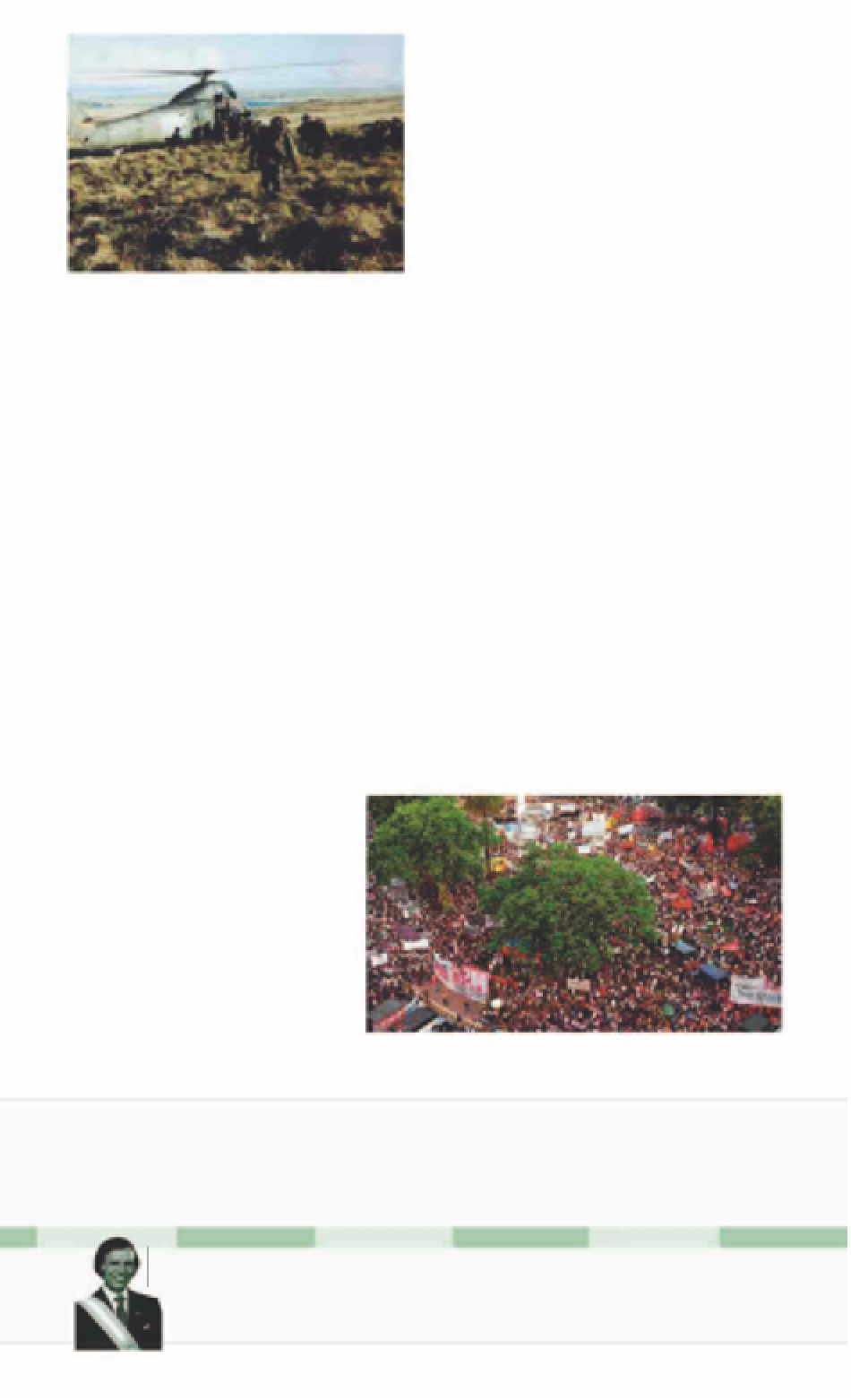Travel Reference
In-Depth Information
at fever point, de la Rúa imposed emerg-
ency restrictions on cash withdrawals,
preventing Argentinians from withdrawing
their savings from banks. For many, it was
the last straw. Thousands took to the streets,
demanding the government's resignation.
After two days of chaos had left 27 dead,
de la Rúa resigned. There followed four
presidents in 11 days, plus the largest debt
default in history - US$150 billion - and a
sharp devaluation of the peso in 2003,
wiping millions from bank savings.
Post-2003, Argentina has rebounded.
A surge in commodity prices prompted an
export-driven economy that has grown at
over 8 percent per year. Néstor Kirchner's
repeals of the Due Obedience Law and of
Menem's pardons of Dirty War leaders
have won praise from human rights
groups and led to new criminal trials. In
2010, Argentina passed a Gay Marriage
Law offering same-sex couples equal
rights as heterosexuals. Although
confidence in a better future remains
fragile, Argentina's current political
stability, growing tourism industry, and
thriving agricultural exports bode well
for the country.
An airlift taking place during the Falkland Islands (Islas Malvinas)
war in 1982
country. However, unable to control
a difficult economic situation, which
spiraled into hyperinflation, the Radicals
were routed in the national elections of
1989. They handed over power to a
reinvigorated Peronist Party, led by Carlos
Menem. Menem implemented a neoliberal
program that emphasized massive privati-
zation and pegged the peso to the dollar
at one-to-one. The effect was striking;
inflation dropped sharply, but local
industry collapsed under foreign
competition, provoking recession
and record unemployment.
Argentinians turned to Fernando de la
Rúa, head of the Radical-backed Alliance.
The situation that confronted him,
however, was dire. Heavy borrowing
during the Menem years had left
Argentina with a crippling foreign
debt, and the new government was
forced to adopt severe measures in
order to stave off default. Still the
recession deepened, leaving the
poor destitute and the middle class
struggling. In December 2001, with
rumors of default and devaluation
Hundreds protest during the economic crisis in 2001, Buenos Aires
2007
Cristina Fernández de Kirchner wins
presi den tial election
2009
Justicialist Party loses its majority
in both houses of Congress
2010
Argentina becomes first
Latin American country to
legalize gay marriage
1999
Fernando de la Rúa elected president
ahead of Peronist candidate
2002
Argentina
records biggest debt
default in history
1990
1995
2000
2005
2010
2015
2003
Néstor Kirchner voted
in as president
2011
Cristina Fernández
de Kirchner wins landslide
election and becomes first
female Latin American
president to be re-elected
1994
Constitutional reform
allows Menem to run for
re-election and he wins
second term
2001
Economic collapse
leads to protests
Carlos
Menem








































